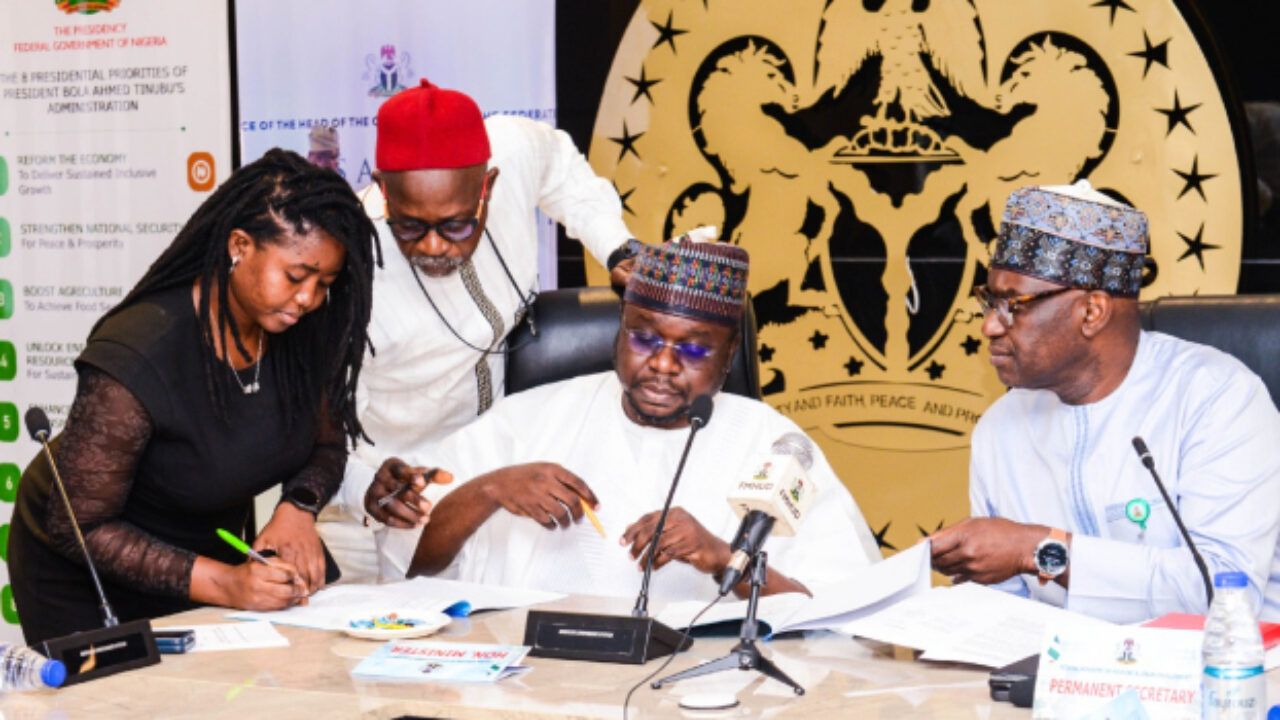
The Federal Government has officially commenced a landmark programme to train, certify, and provide job opportunities for 100,000 construction artisans across Nigeria.
The initiative—formalised through a Memorandum of Understanding (MoU) signed on Tuesday with Polaris Capital Limited—will run for three years and is designed to address the critical skills gap in the housing and construction sector. Funding will come from federal budget allocations, private sector partnerships, and donor support.
A key feature of the programme is the introduction of a digital booking and verification platform, which will connect certified artisans directly to job opportunities while generating revenue to sustain the scheme beyond the MoU period.
At the signing ceremony, the Permanent Secretary of the Federal Ministry of Housing and Urban Development, Dr. Shuaib Belgore, endorsed the agreement on behalf of the Ministry, while Kelvin Vihishima, CEO of Polaris Capital Limited, signed for the company.
According to a statement from the Ministry, this development marks the official launch of the National Artisan Skills Acquisition Programme (NASAP)—a nationwide intervention to modernise Nigeria’s construction workforce and improve professional standards in the sector.
Dr. Belgore emphasised that the programme is designed not only to strengthen technical capacity but also to create sustainable jobs for young Nigerians while promoting inclusivity by engaging women and persons with disabilities.
The trades covered under the programme include:
Bricklaying and Masonry, Plumbing, Electrical Installations, Carpentry, Painting, Welding, Tiling, POP and Screeding, Upholstery, Air Conditioning and Refrigeration.
Speaking at the event, Vihishima described the partnership as a strategic step towards tackling unemployment and eliminating quackery in the construction industry. He noted that certification would help ensure quality standards while making skilled manpower readily available nationwide.
The Ministry added that the pact demonstrates its commitment to skills development, job creation, and sustainable urban growth, while ensuring accountability and long-term economic impact.
It will be recalled that in June, the Ministry announced plans to pilot NASAP in 2025, targeting 3,000 artisans across three states for six months of intensive training in 10 high-demand trades.
The rollout of NASAP will be executed in three phases:
2025 Pilot Phase – Training of 3,000 artisans in selected states.
2026 Nationwide Scale-Up – Expansion to cover 100,000 artisans across the country.
2027 Establishment of Regional Centres of Excellence – To sustain skills development and professional standards.
NASAP ultimately seeks to professionalise artisanship, close Nigeria’s construction skills gap, enhance housing quality, and raise building standards nationwide.



